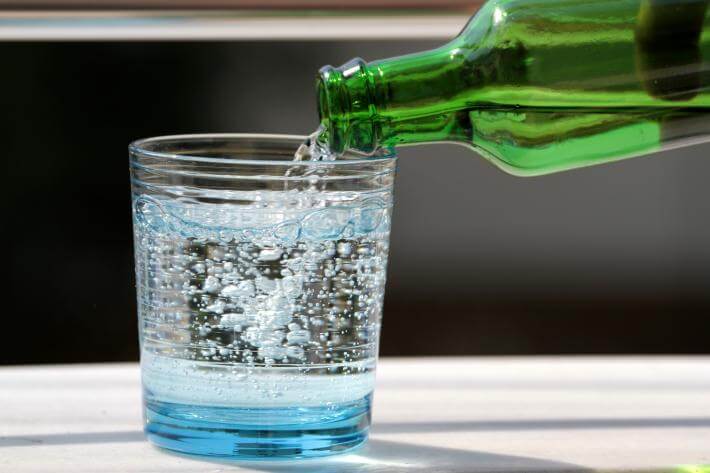As if you even needed one, right?
By now we all know that drinking enough water is essential for good health, but you might not have known how important it is for your teeth. Here are a few ways that drinking water is helping improve your dental health
By now we all know that drinking enough water is essential for good health, but you might not have known how important it is for your teeth. Here are a few ways that drinking water is helping improve your dental health
1) Water neutralizes acids. Acids are the mortal enemy of tooth structure, and the bacteria that cause cavities and periodontal disease LOVE an acidic environment. Many of the things we like to drink are acidic to some degree, and they acidify the entire mouth even after we have finished them. Soda, coffee, tea, orange juice, wine and (heaven help us) energy drinks like Red Bull are some of the worst offenders. Water, on the other hand, has a PH of 7.4, which is neutral and non-acidic. When you finish off your meal with a glass of water, you're diluting and neutralizing a good portion of these acids, before they have a chance to harm your teeth.
2) Saliva production. Saliva is more than just the stuff that helps us chew and swallow our food. It actually contains lots of Calcium, and also antibodies from our immune system that help fight off bacteria. A dry mouth is an invitation to tooth decay and gum disease. Staying properly hydrated is critical to maintaining the proper salivary composition and production.
 3) Fluoride. When I sit down in a restaurant and the server asks me what kind of water I want, I always say "tap water". They might just think I'm too cheap to spring for the bottled water, But tap water contains trace amounts of Fluoride (in most of the country anyway) which strengthens tooth enamel and increases its resistance to acid attack. Some folks think fluoride is only helpful when we're children, Not true. At any age, fluoridated drinking water is an important weapon in our anti-cavity utility belt.
3) Fluoride. When I sit down in a restaurant and the server asks me what kind of water I want, I always say "tap water". They might just think I'm too cheap to spring for the bottled water, But tap water contains trace amounts of Fluoride (in most of the country anyway) which strengthens tooth enamel and increases its resistance to acid attack. Some folks think fluoride is only helpful when we're children, Not true. At any age, fluoridated drinking water is an important weapon in our anti-cavity utility belt.
4) Water.....the universal cleaning solution. Whenever you want to clean anything, water is probably involved. Whether you want to clean a blackboard, or a car.....or even your teeth, you're not going to get very far without water. When we drink water, the very act of swishing it around our mouths loosens and washes down residual bits of food, decreasing the rate of plaque and tartar formation.
Your teeth are incredibly valuable. (just ask anyone who has lost a few of theirs) You can help protect them by making sure you drink enough water. Wouldn't a tall glass of refreshing ice water hit the spot right now? Best of all.....water is FREE !


